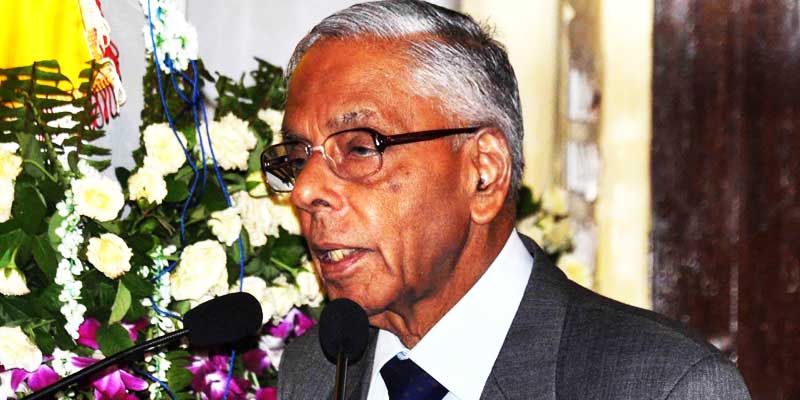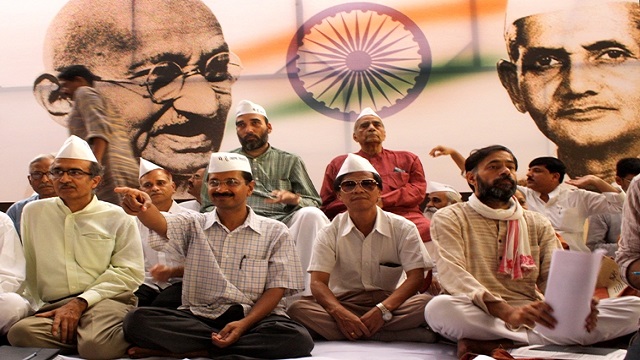It is said that doing business in India is like participating in a hurdle race
It is said that doing business in India is like participating in a hurdle race, with just one material difference. In a hurdle race the number of hurdles, their character and location are known in advance. But there hasn’t been any determined attempt to discover the obstacles that people face while trying to do business in India.
The M Damodaram Committee reports has a number of proposals, which could give power to India’s true potential as a favoured global investment destination. Where it could have done much more was to identify the top 10 individual obstacles in the various known thematic areas, which need instant improvement.
First, the most challenging rule is concerning the appointment and liability of supervisors. The report has said that supervisors should not be applicants or supplicants for the regulatory post and that they should show before a parliamentary committee after every six months to specify what they did in the last six months and what they intend to do in the coming months.
There are suggestions for a authoritarian check and preview authority, a significant discussion process, an advance ruling authority in every organisation that writes policies, a sunset clause term, deemed endorsement after the set time period, incentivising state-level transformations and simpler laws. In total, what is sough is less but smart regulation.
Second, differences and need of consistency in design and application of policies can be a showstopper for industry. Rules differ very much from state to state and this reuslts to the same company operating in a different way in different states. For example, the IT and ITeS industry is considered as a necessary service in Andhra Pradesh under Section 2 of the AP Essential Services Maintenance Act, 1971. In the event of a strike or city-wide shutdown, the Act lawfully safeguards IT industry workers who can continue uninterrupted.
However, not all states pursue this progressive legislation. Similarly, if we take the Industrial Disputes (Standing Orders) Act, 1946, quite a few states such as Gujarat, Maharashtra, Tamil Nadu and Karnataka had totally excused the industry from the Act. Karnataka was the first one in doing so, back in 1999. Sadly, after the end of exemptions lately in some states, there is unreliable proof of labour inspectors descending on the offices of companies, driving away an investment-friendly climate.
Third, in India, the procedure itself is the punishment. Re-engineering and simplifications of procedures is essential for smooth performance of business. A case in point is the huge number of impending cases under Section 138 of the Negotiable Instruments Act, related to cheque payments. The complete volume of impendency makes sure that cases take years to be decided upon when the matter is comparatively simple.
As things stand, a wrongdoing under this Act is complete only when the drawer of the cheque snubs to make good amount during a period of 15 days, after being put on notice concerning the discredit of the cheque. In many other countries, the crime is complete if a cheque is issued with lack of sufficient money to facilitate it being honoured. Transforming our regulations by way of a simple modification can put an end to the impasse in courts.
Fourth, take the case of incentives for drawing investments and modifications to title-related laws, which are required significantly. With presidential consent for the new land law on the anvil, it is going to be a terrible for most states to obtain even a tiny strip of land for compensation and rehabilitation expenses are expected to shoot high.
Most states use either concessional government land or a single window for all sanctions or tax incentives or even additional floor space index as incentives to draw industry. Though, the land is a resource which should not be given away free. As an alternative it can be traded through creative rules. For example, most knowledge industries need 200-300 square feet per worker, which means government can give about three acres of prime land on long term lease in exchange for a bank-assured promise of 1,000 jobs being created in exchange. Farmers’ cooperatives can be given urban land in return or even stocks in companies if they desire that to a complete sale, in the case of privately obtained land.
The counter-argument is why developed cities such as Bangalore, Delhi, Hyderabad or Mumbai should put forward any incentives at all when investments are already flowing there? Nevertheless, there is massive inter-state competition for investment and also competition across countries for drawing investments. For example, in the past few years India, regardless of its linguistic benefits, has been gradually losing investments to the Philippines and East Europe in the BPO sector. Land is the essential asset of the state and needs to be leased- not free of cost- subsequent to acknowledged calculations for the number of people engaged.
No number of talks will do what a small amount of action can do. Worldwide, the insight of India as unfriendly to business is gaining impetus. If the time is not stopped – or if, in the name of land or other modifications, the needle swings too far the other way- investment flows, both domestic and foreign, will come to a crushing standstill.





